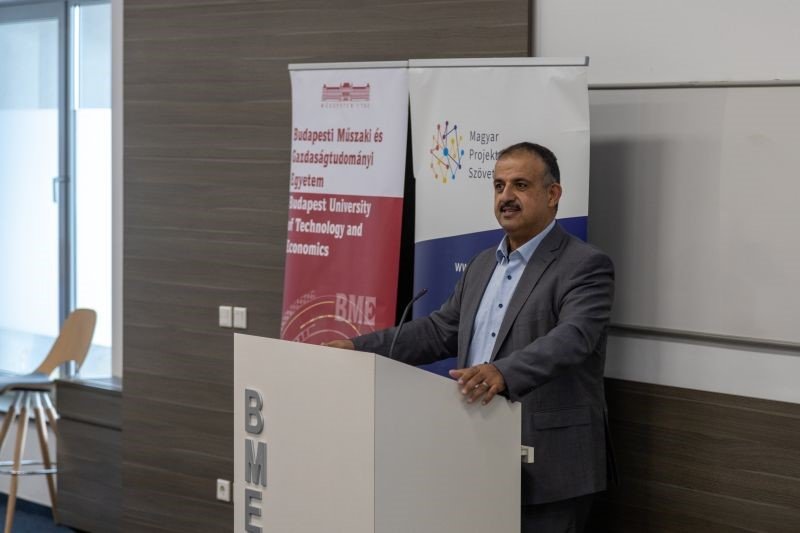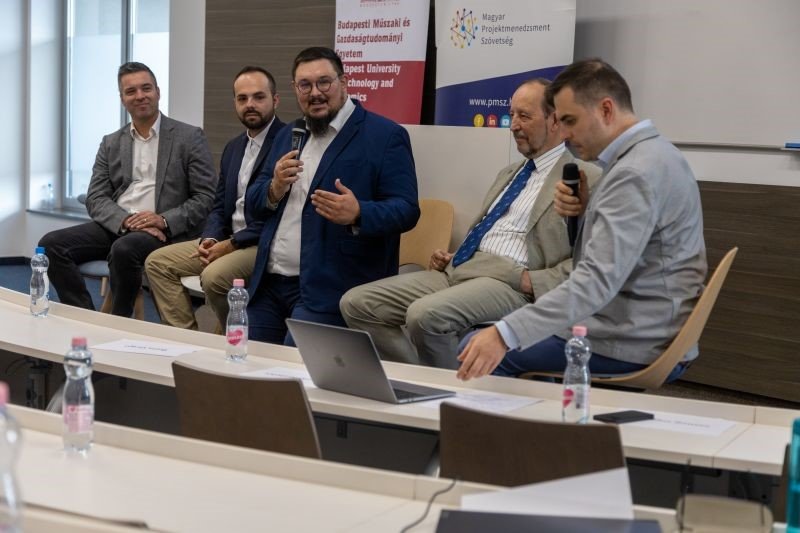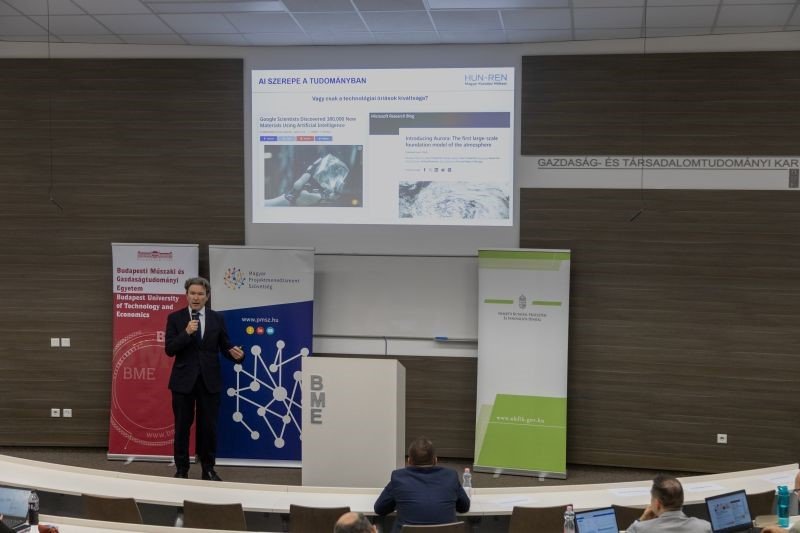Artificial Intelligence and digital transformation are two of the most important topics at the moment, with a huge impact on both the economy and the public administration. These issues were the focus of the conference “Artificial Intelligence and The State”. The digital transformation of the economy and the increasing use of AI are focus areas concerning the allocatoin of both national and European funds. The aim of the conference, organised by the National Research, Development and Innovation Office in cooperation with the Hungarian Project Management Association, was to show how policy-makers can encourage economic actors to use AI – and how AI can contribute to increasing the efficiency of public administration. The event also highlighted the opportunities and breakthrough points for Hungary in this sector.
Following the welcome speech of Charaf Hassan, Rector of BME and member of the AI Coalition’s Board, Miklós Tóth, professional leader of the Coalition, moderated the roundtable discussion on funding, grants and economic issues of AI projects.

Szabolcs Szolnoki, Deputy State Secretary for Technology, highlighted technology change strategies and supporting programmes. The government is encouraging the use of AI by government and policy actors in a number of areas to support the digital transformation of the economy, but the discussion also focused on education programmes to support the competitiveness of SMEs. Szabolcs Szolnoki emphasised the opportunities to increase the technological maturity of Hungarian businesses that may also contribute to their efficiency and competitiveness.

Roland Jakab, President of the Coalition, gave a presentation on the educational and scientific links of AI. In his presentation, he stressed that the ability to use AI is no longer only essential for higher education and academia, but sharing good practices in the use of technology is now the basis for many sectors.

Rector’s Office, Communications Directorate

